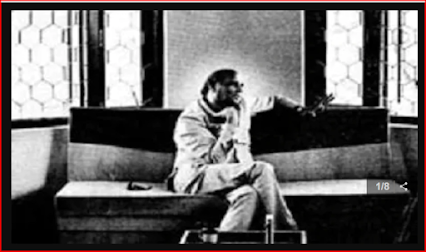The conviction of Teja brings to an end the six-year-old battle waged by the Government of India to bring the former Chairman of the Jayanti Shipping Company to book.
The Central Bureau of Investigation had registered the case against him in 1966 on a complaint lodged by a former secretary of the Shipping Corporation of India. At the time, the accused was abroad.
Based on the investigations by the CBI in India, the UK, the US, Norway, Japan and the Bahamas, Teja was charged with having misappropriated and converted to his own use $10,42,000 belonging to the Jayanti Shipping.
Teja and his wife, Ranjit Kaur, were arrested in the USA in May 1967 but they jumped bail during the extradition proceedings and sought refuge in Costa Rica, whose President happened to be a personal friend of Tejas. Attempts to secure their extradition proved abortive. The Interpol was alerted by the CBI.
It was on July 10, 1970, that Scotland Yard arrested Teja at London's Heathrow airport as he was trying to fly after a visit to Britain on a Costa Rican diplomatic passport. During extradition proceedings in London, Teja claimed diplomatic immunity.
The President of Costa Rica himself publicly deplored his detention and the Costa Rican Charge D'Affairs in London made a strong representation to the British Foreign Office against the alleged violation of Teja's diplomatic immunity.
However, a British court ordered his extradition on April 17, 1971, and he appealed to higher courts but lost. He was then brought to India to face trial.
In the trial lasting over a year, the prosecution produced 33 witnesses including four foreigners. Five others were examined on commission in England. Another accused, Teja's wife, Ranjit Kaur, who is also wanted in this case, is in Costa Rica, safe from the hands of the law.
Crime and punishment
The following are the charges upheld by the court. The first charge of criminal breach of trust was in respect of $ 718,560 belonging to the Jayanti Shipping Company in which the accused had dishonestly instructed and caused the management of Mitsubishi Shipbuilding to add two per cent to the agreed actual price of eight bulk carriers.
According to the second charge, the accused had asked the same firm to add two per cent to the actual price of three ore-cum-oil carriers, involving an amount of $ 2,20,500.
The third charge was similar, involving $ 1,45,040. Between October 19, 1960 and July 15, 1964, Teja had received a two per per cent commission by dishonestly getting the price of the Vikram Jayanti enhanced by the same Japanese firm.
On a fourth charge involving $ 1.2 million, the court held him guilty of fraudulently obtaining in his name the hire earnings and said that the accused had derived personal benefit which should have gone to the Jayanti Company.
Another charge on which the court held Teja guilty was under section 420 IPC. The accused had deceived Mitsubishi International Corporation by misrepresenting to them that he had been nominated as the beneficiary of the letter of credit which they had agreed to issue in the favour of Jayanti Shipping. The MIC on the production of the Company's letter issued the letter of credit for $ 1.2 million in his favour.
Teja was also charged with having forged an undated resolution of the board of directors of the Company himself as the person to receive a loan of $ 12 lakh in the form of a letter of credit granted by MIC to JSC.
The judge also held Teja guilty of the falsification of accounts as Am Indo-- a company created by Teja -- sought to "cover up the track of crimes by him... Am Indo was not created in the normal course of business but to act on some ulterior motive."
The last charge related to falsely recording 15 shillings per deadweight per month as the charter hire rate in respect of Chandra Gupta Jayanti, a ship belonging to the Company.
He executed a separate confidential letter showing the charter hire rate at 16 shillings per dead weight and directing the difference of one shilling in the account of the Independent Shipping and Trading Company, Nassau, Bahamas.
How many Tejas?
In his 350-page judgement, Mr M.S. Jain observed that the offences of criminal breach of trust were serious and commercial offences of this nature assumed importance when high finance and great risks were involved.
Despite the safeguards of compulsory auditing and submission of annual accounts, the Judge said: "Instances are not lacking In which men at the helm of affairs strive to drain off the company's assets through fair or foul means",
The case of Dr. Jayanti Dharma Teja is further proof of the fact that the ties between the underworld of crime and the underworld of politics are very close.
Teja made full use of both with such gifts as mink coats and free overseas tours and cleverly manoeuvred his way into the New Delhi establishment. The burning question is: How many more Tejas are on the prowl in the corridors of power at present?
Point of view
9 December, 1972




Comments
Post a Comment
Thanks for your comment. It will be published shortly by the Editor.